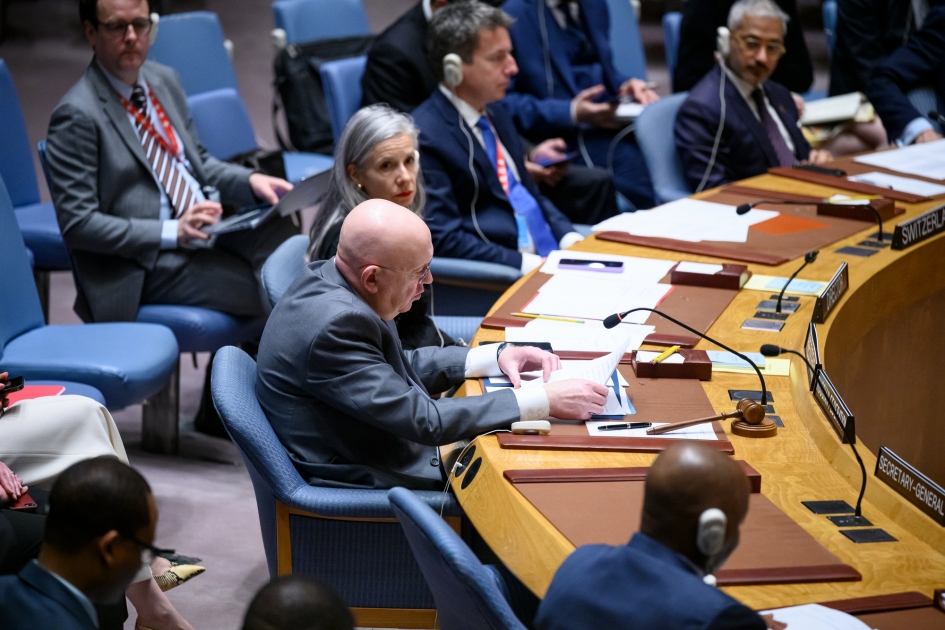Statement by Permanent Representative Vassily Nebenzia at UNSC briefing on the DPRK
Colleagues,
We thank ASG Khiari for the briefing.
Since the beginning of this year, the Council has convened on the DPRK five times – in different formats and upon request by certain states. As a responsible Presidency, Russia accommodated the request of some delegations for another meeting on this subject matter.
However in our national capacity, we strongly oppose the trend towards mainstreaming such Security Council meetings for the purpose of propaganda and exerting pressure.
Some Council members say their desire to discuss this situation is motivated by a grave concern over the recent developments around the Korean Peninsula. The situation is very tense indeed. However those countries who initiate such discussions, the United States in the first place, are directly involved in the stepping-up of the escalation that we are seeing. We did not hear anything new today. Once again, we are offered a one-sided vision where the guilty have been picked in advance, and anticipated reaction must be the same as that of Washington.
Where Russia stands on that is well-known. We oppose any military activity that may jeopardize security of the Korean Peninsula and North-East Asian states.
We repeatedly stated that the Security Council should consider the situation on the Korean Peninsula in a comprehensive manner. We can deliver effectively on our responsibility to respond to threats to peace and security only when we see and understand the full picture of developments in a particular region.
Certain states, who spoke quite a bit today about the importance of upholding UNSC resolutions on the DPRK, keep forgetting that those resolutions also envisage a movement towards a political-diplomatic solution, which does not imply declarative statements, but rather concrete practical steps that should demonstrate genuine commitment to dialogue and search for mutually acceptable settlement models. It is our firm conviction that all discussions of the Security Council must be result-oriented.
However in practical terms the picture is quite different. Threatening military exercises are taking place which practice strikes against the DPRK, further illegitimate unilateral sanctions are imposed (without account for humanitarian situation in North Korea), and politicized statements are made in the Security Council chamber. We repeatedly underscore that the situation in the region is running in a “vicious circle”.
We assume that a steep growth of military activity in the North-East Asia has been caused by the irresponsible goal of Washington and its allies to enhance sanctions-based and forceful pressure on Pyongyang as part of the so-called extended deterrence strategy.
This being said, a question begs itself about the goals that Washington and the allies are pursuing. Coupled with the promotion by the United States of its unilateral security doctrine in Asia Pacific, and its desire to draw more division lines in this region, the expedited militarization of North-East Asia is assuming a clearly destructive character. Particularly indicative was the creation of AUKUS (the partnership of the US, UK, and Australia), whose plans raise grave concerns, i.a. in the context of NPT observance.
In conclusion, we would like to stress that repeating the same positions in the Security Council month-to-month, which is not followed by concrete results, is fraught with undermining the authority of this body. Together with China, we repeatedly offered concrete initiatives aimed at searching for acceptable-to-all solutions and settlement of the situation on the Korean Peninsula given proper account for the interests of all sides. Our proposals remain on the table, and we remain ready for a substantive discussion. We are convinced that most members of the Council are also interested in a joint elaboration of forward-looking solutions. We call on those few countries who block this process to revisit their stance and start working to the point. This, however, would require a fundamental change of approach for their part, on which, regretfully, we pin but little hope.
Thank you.
